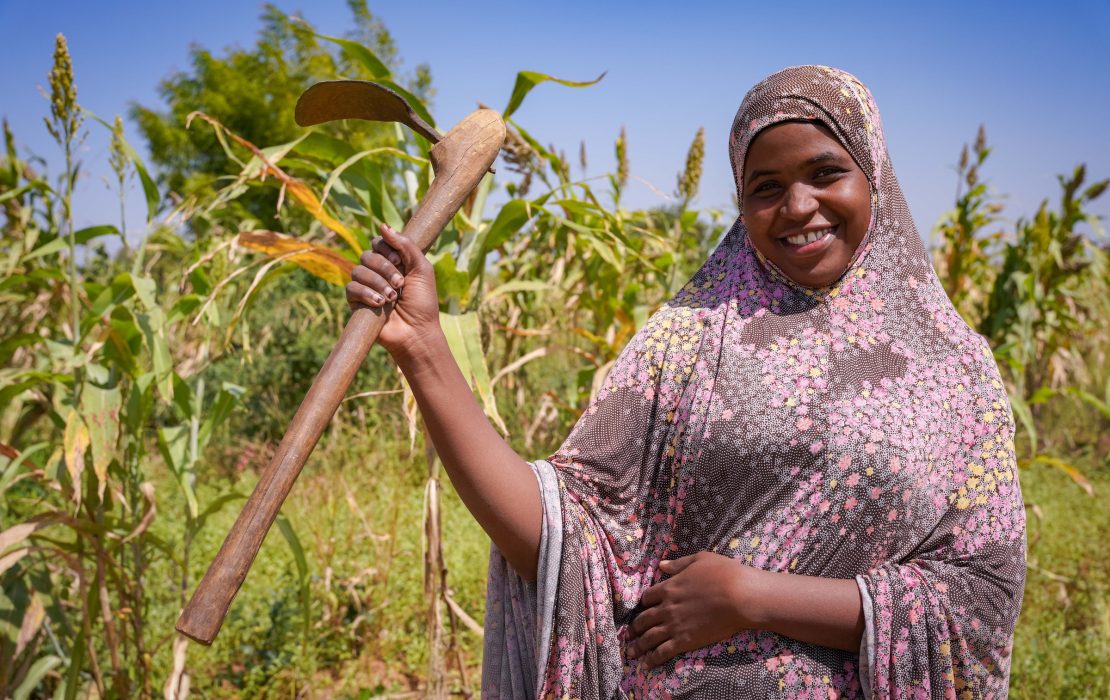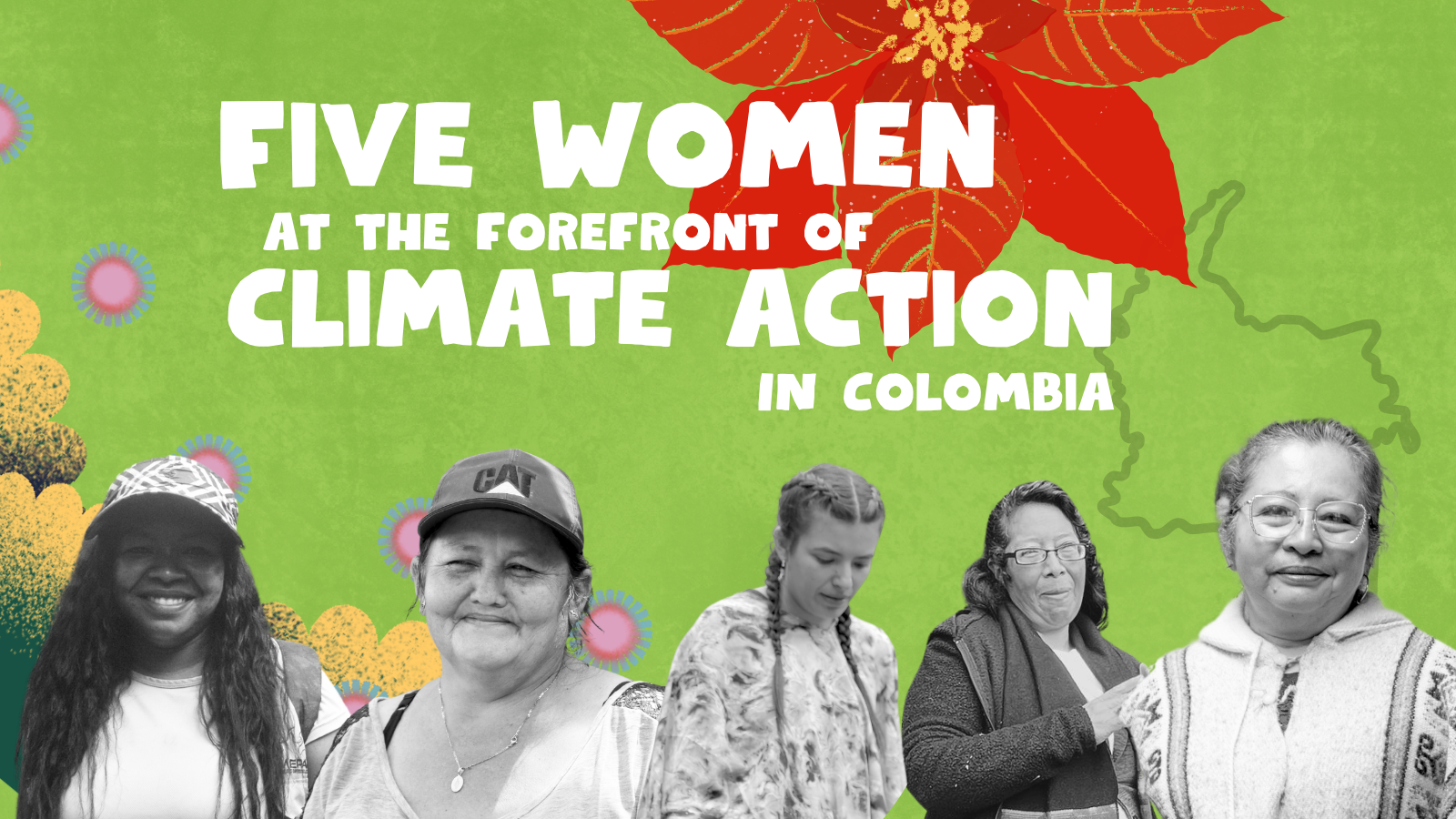
Colombia is one of the most megadiverse countries in the world, hosting 10 percent of the planet’s biodiversity across rich and complex ecosystems stretching from the Pacific coast to the Caribbean Sea and from the Amazon basin to the mountain ranges of the Andes.
However, deforestation, agricultural expansion, mining and industrial activities, armed conflict and illegal drug trafficking are causing serious environmental degradation across the country. The loss of nature and biodiversity exacerbates the impacts of climate change, such as droughts, floods and sea-level rise, putting people’s lives and livelihoods at risk. At the same time, climate change accelerates biodiversity loss, endangering critical ecosystems and the communities that depend on them, particularly Indigenous Peoples, Afro-descendant and campesino communities.
Photo credits: UNDP Colombia
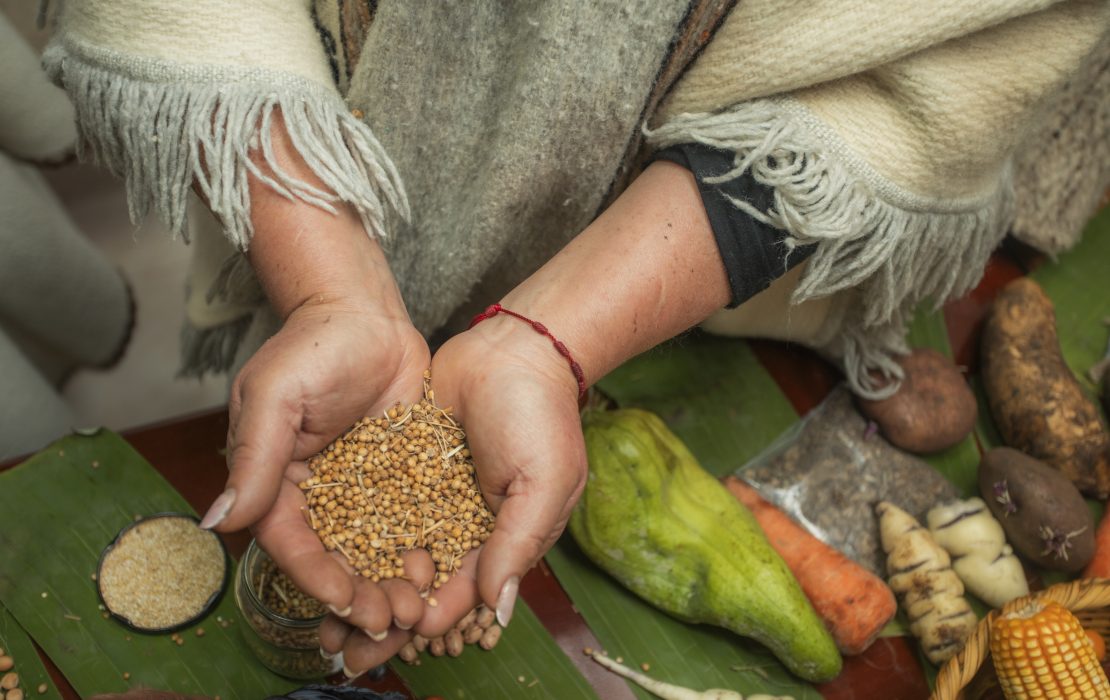
The climate and nature crises also have a greater impact on women. This is due to the unequal power dynamics between women and men, the gender gap in access to education and employment opportunities, the unpaid care burden, the prevalence of gender-based violence, and all other forms of deep-rooted gender-based discrimination. As such, countries must put gender equality at the heart of their national climate pledges and biodiversity action plans. In doing so, they can accelerate progress toward positive climate and biodiversity outcomes, while also achieving broader sustainable development impacts.
Women have a crucial role to play in shaping this path forward. They have been, and continue to be, key agents of change for environmental action worldwide. Colombia is no exception. Women across the country are making significant contributions as educators, peace builders, entrepreneurs, and cultural and community leaders. In many Indigenous communities, they serve as guardians of ancestral knowledge, drawing on deep-rooted traditions that provide valuable nature-based solutions for mitigating and adapting to climate change.
Adriana, Lidia, Yanet, Ángela María and Raquel are five women from different regions in Colombia who are leading solutions to tackle the climate and biodiversity crises. Here are their stories.

Along the Pacific coast, in the city of Tumaco in southern Colombia, an association of women entrepreneurs works to combat deforestation and promote sustainable farming practices. Adriana Arizala is one of the co-founders of the Fundación Mujeres Emprendedoras del Pacifico and, alongside her team, works to address both gender inequalities and food insecurity.
“We recognized the deep-rooted machismo in our community, where men were typically given leadership roles and women were relegated to caregiving and household tasks. By creating this association, we aim to empower women to make decisions, participate in agriculture, and lead efforts in recovering native fruit trees,” she says.
The 38-year-old agroforestry engineer and mother balances her roles as a public school teacher, community leader and advocate for women's empowerment, focusing on supporting local Afro-descendant women and ensuring food security for future generations.
“I love sapote, chontaduro. How can we let them disappear? And, furthermore, how are the next generations going to sustain themselves? We currently have to eat fruit that comes from other places, which is much more expensive," Adriana explains.
Climate action is vital for Tumaco’s future. But the region is also a post-conflict zone, following Colombia’s half-century of civil conflict. Adriana and the women in the association know that working on climate action also supports peacebuilding efforts as it fosters sustainable development, reduces resource-related conflicts and strengthens the resilience of communities.
Under their stewardship, women from different villages in the area have been able to successfully organize, collaborating to plant native fruit trees and produce and sell their organic goods.

Ipiales is a town in southern Colombia, located in the Nariño department near the border with Ecuador. Here, at an elevation of approximately 2,900 meters in the Andes mountains, Lidia del Rocio Moreno teaches Indigenous youth at the Institución Educativa Agroindustrial Los Pastos. The institution offers education with a focus on agroindustry, combining ancestral Indigenous knowledge with practical training in agriculture and industrial practices to prepare students for careers in sustainable farming and related sectors.
“My experience has shown that education has different dimensions. It's holistic, it encompasses everything. As a mother, teacher, craftswoman, doctor, and member of the Education Council, I feel proud of what we achieved,” says the 51-year-old teacher, whose son also attends the school.
As the impacts of climate change, including extreme weather, shifting precipitation patterns, soil degradation and water scarcity, increasingly disrupt traditional farming in this region, the Institución Educativa Agroindustrial Los Pastos helps Indigenous communities adapt by promoting resilient and sustainable agriculture techniques.
Their courses support young people to understand food security, protect biodiversity and preserve their ancestral lands, ensuring that both their livelihoods and cultural identity are maintained in the face of the climate crisis.
Lidia is hopeful in the promise the young people and their new skills bring to restoring nature and biodiversity in the region.
“At the community level, we've planted a small seed. It’s not just medicine, a remedy or an adornment; it’s a seed of care for Mother Earth,” she says.
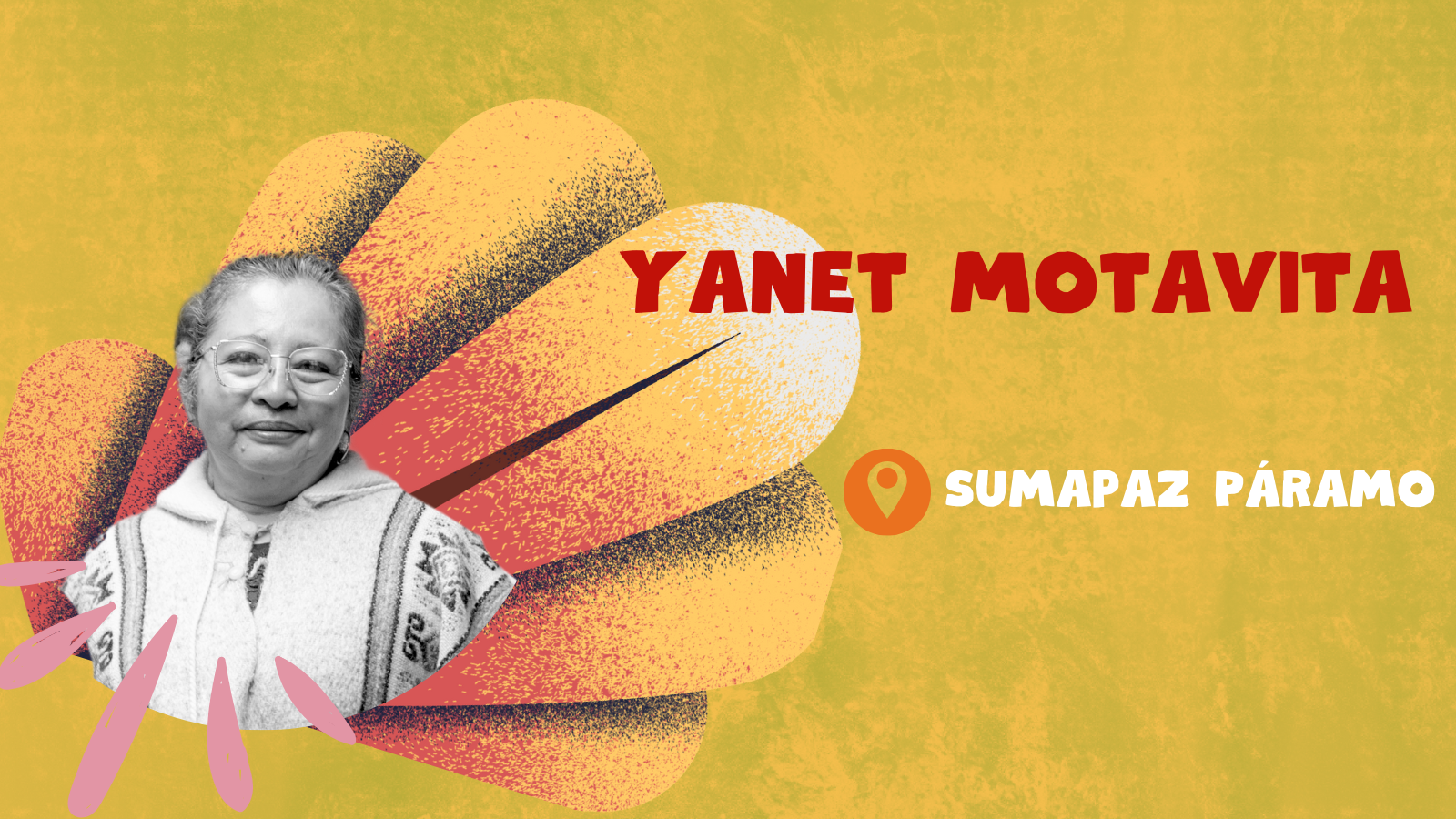
Born in Acacias, Yanet and her family now live in the Sumapaz Paramo, the largest moorland ecosystem on the planet. Located in the Colombian Andes, this moorland, together with the Chingaza National Park, provides water to more than 20 million people in Colombia’s eastern mountain range.
Yanet works with local farmers to protect their mountain ecosystems and enhance the climate resilience of their communities. She is the manager of the Laboratorio Comunitario de Acción Climática (Community Laboratory for Climate Action), one of four agricultural organizations recently established in the moorlands to implement and scale up adaptation and conservation models specific to the biodiversity of the landscapes they operate in.
“All our agricultural and production activities are carried out with respect for the fragile ecosystems in which we live,” Yanet says.
Climate action laboratories offer rural women spaces to get involved in decision-making on environmental action at local and regional levels. They also work to rescue community knowledge about 15 traditional agricultural practices that are crucial to strengthening climate change adaptation.
One of the key pieces of knowledge that is essential to boosting deteriorating agriculture and food systems in the region is the recovery of Andean seeds. Facilitating the transfer of native seeds to farmers helps increase food security and climate resilience in the region.
With support from farmers in surrounding villages, the laboratory that Yanet leads carried out a series of studies on the efficacy of agricultural practices such as using organic fertilizer. These studies can now be used to develop policies on how to engage with the land to boost its resilience and productivity. They also teach techniques to the new generations so that they can carry the change forward.
“The most important thing was that we were able to implement change with the youth.” Yanet says as she looks towards securing a safer future for her community.
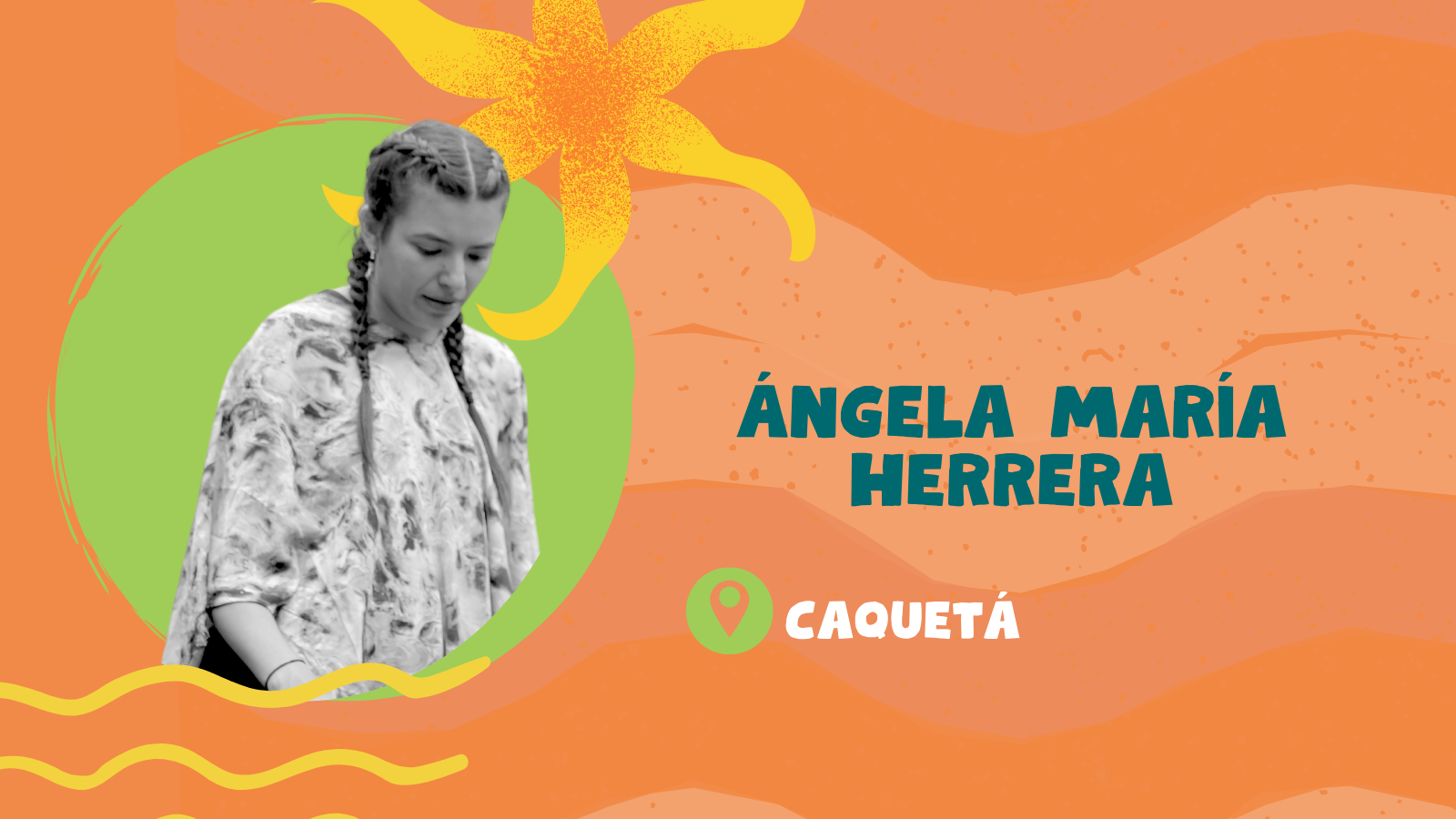
Caquetá is a region that has been deeply affected by Colombia's armed conflict. In 2016, when the peace agreement was signed, people in the region started feeling more hopeful about the possibilities to build a sustainable future.
Ángela María Herrera was one of them. As a young woman, she is now working tirelessly alongside young climate advocates to build a peaceful country where neither people nor nature are casualties of conflict.
"Young women are powerful, and we are using our ability to innovate and be creative to protect the environment and foster peace in our territories," Ángela María says.
Driven by this belief, Ángela María is currently working to ecologically restore the Piedemonte Andino Amazónico, one of Columbia’s most biodiverse regions, by using a nature-based approach. This involves community-led efforts to restore ecosystems by planting native Amazonian trees. These reforestation efforts use seedlings from nurseries run by ex-combatants and conflict victims. In addition, the initiative produces sustainable garments using environmentally-friendly textiles.
Ángela María’s project brings together communities that were once on opposite sides of the conflict, helping them work together towards a common goal: restoring the land and generating livelihoods. Through her work, she also aims to show that fashion can be more than just clothing, it can be a symbol of resilience and hope.
Recently recognized as a Youth4Climate awardee, Ángela María’s initiative will further grow thanks to the support and financing provided, enabling her to expand her impact in the region.
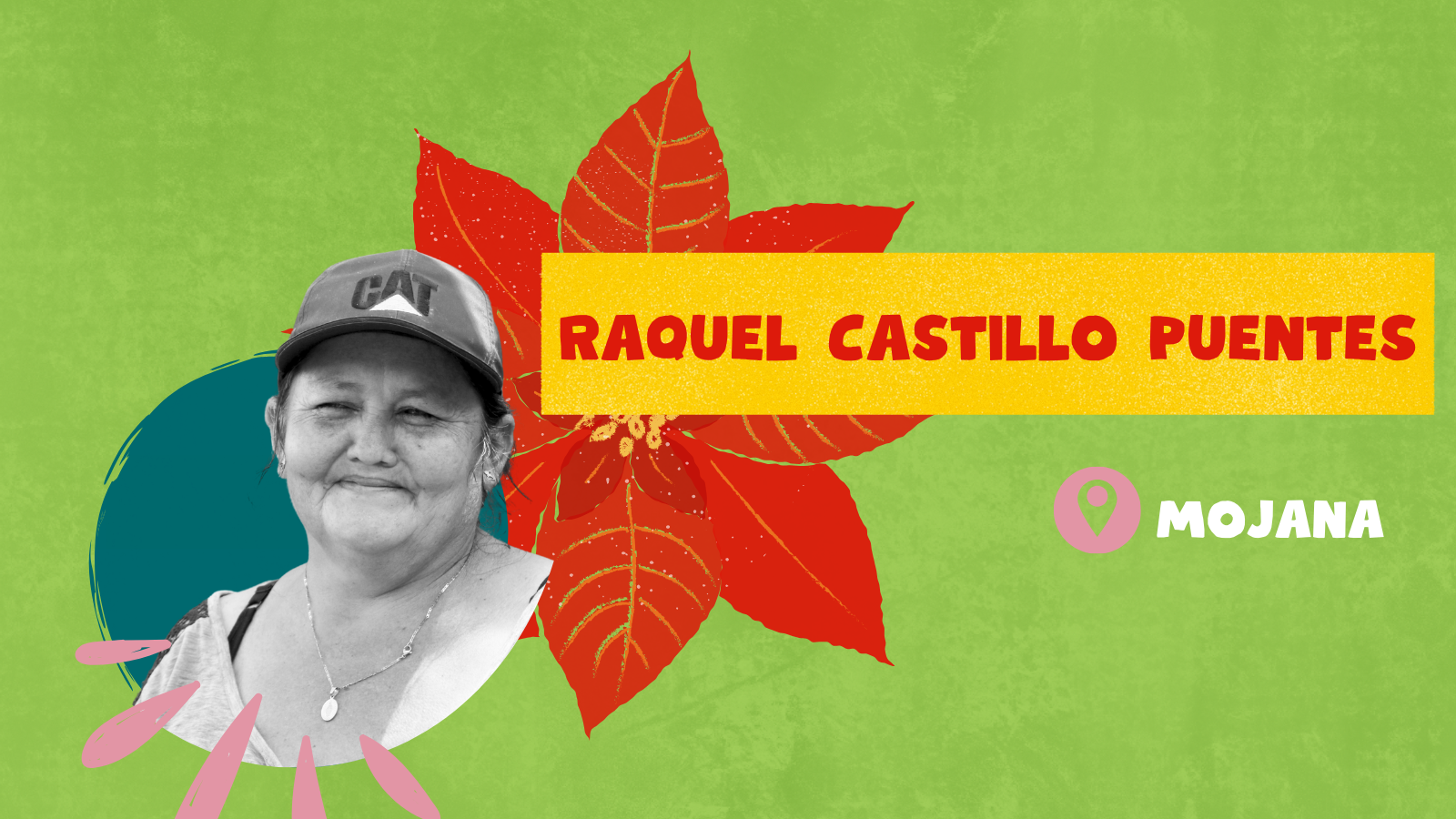
In the northern part of the country, the wetlands of La Mojana face extreme vulnerability to climate change impacts. Both floods and droughts alter the balance of these complex systems of rivers and deltas, and therefore the lives of their residents.
As an entrepreneur, Raquel established a plant nursery to help protect and restore her community’s ecosystems.
20,000 seedlings from Raquel’s ‘Las Palmitas’ nursery have already been planted on an area equalling three square kilometres in La Mojana. Raquel herself has planted more than 1,100 trees, including American oil palm, laurel and pimiento.
The restoration plan of La Mojana is part of Colombia’s main strategy for restoring degraded areas to ensure biodiversity and ecosystem services conservation, while also acting as a measure to advance climate change adaptation.
“The restoration is a blessing. Imagine all the fauna that can live there! Here in Las Palmitas, we are all changing and planting trees, and we will not regret it. This initiative helps fight climate change and we will be happy when we see this good, green land again,” Raquel says.
Like other climate heroes the world over, Raquel is working to protect her natural heritage, to preserve her livelihood and to build a climate-resilient future for generations to come.
Photo credits: UNDP Colombia
***
As countries prepare to renew and advance their commitments to action on nature loss at COP16 in Colombia and climate change at COP29 in Azerbaijan, they have to strengthen the link between nature, climate and gender equality.
Under the Climate Promise, UNDP is mobilizing support for advancing gender equality and women’s empowerment approaches in climate planning and policy processes, as well as promoting integrated and inclusive climate action solutions around the world. In Colombia, UNDP has supported processes that build peace with nature, particularly in post-conflict contexts, and has advanced women’s roles and achievements in environmental action and peacebuilding.
Adriana’s and Lidia’s associations are two of the 23 Indigenous and local community-led organizations in Colombia that received small grants from UNDP’s Climate Promise, with funds from the Government of UK to promote alternatives to deforestation, empower women and youth, and utilize ancestral knowledge for conservation, while directing more funds to vulnerable communities.
Yanet’s work is supported by the SCALA programme, implemented by UNDP and the Food and Agriculture Organization of the United Nations (FAO), with funding from the German Federal Ministry for the Environment, Climate Action, Nature Conservation and Nuclear Safety (BMUKN) through the International Climate Initiative (IKI).
Ángela María is one of the awardees of the Youth4Climate 2024 Call for Solutions for her project, "Weaving Peace with Nature." Youth4Climate is funded by the Italian Ministry of the Environment and Energy Security, co-led by UNDP and the Government of Italy and co-shaped with young people and other strategic partners.
Raquel has received support from an Adaptation Fund project that helps communities respond to challenges related to climate change. She is one of about 1,665 women who have been trained in conservation techniques to both restore and preserve their ancestral home and provide for their families.
